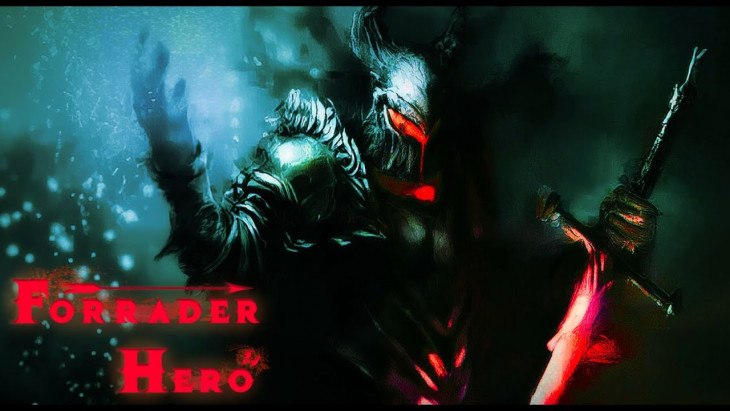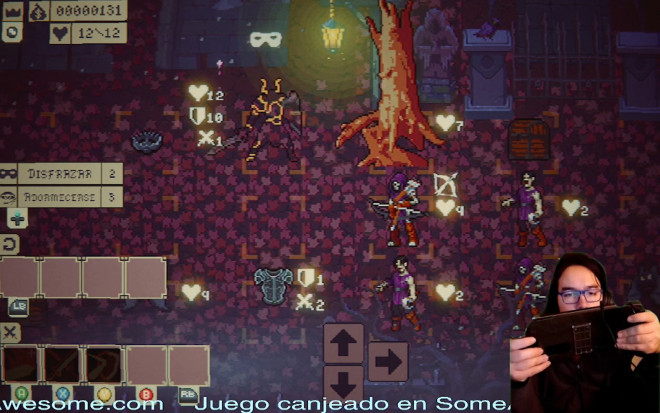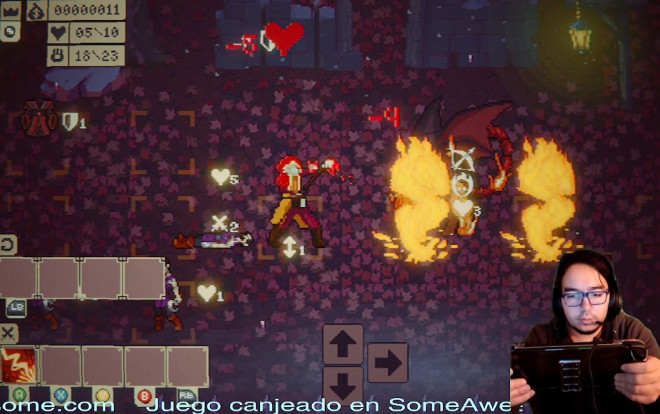
Forrader Hero is a turn-based tactical crawler whose simplicity hides a surprisingly intricate layer of decision-making. What begins as a modest pixel-art rogue experience quickly unfolds into a demanding test of foresight, restraint and class mastery, where each step forward is a calculation and each mistake has consequences that ripple to the end of the run.
The game’s core appeal lies in its clarity of intention. It asks you to observe, adapt, and accept that death is a teaching tool, not a punishment. The farther you advance, the more you realise the entire experience is built around reading the battlefield as if it were a puzzle board, where your class, current vitality, accumulated gear, and even the poison tiles beneath your feet become pieces that determine your fate.
This review dives deep into how the game constructs that tension, why its progression loop works, and what makes it stand out in a genre filled with imitators.

A Tactical Loop Built on Restraint
At its heart, Forrader Hero revolves around choosing battles wisely. The game forces you to consider whether crossing swords with an enemy is worth the health you’ll lose, whether picking up certain treasures will expose you to traps, and whether a specific route will leave you better prepared for the boss that waits at the end.
Movement is restricted to advancing in straight lines with limited vertical shifts. This forward momentum infuses each run with an almost claustrophobic urge to keep going, even when you suspect you’re walking into a cruel layout. The sensation is reminiscent of those mobile-game ads where a lone hero collects equipment and evaluates whether they’re strong enough to confront increasingly powerful foes. However, here the concept is crafted with actual depth, variety, and intent. Forrader Hero takes that superficial gimmick and transforms it into a fully realized tactical experience.
Class Variety and the Knowledge Gained Through Death
Death is frequent, but meaningful. Each failed attempt informs the next: you learn how enemies behave, how certain traps can cripple your defense to dangerous levels, and how the smallest miscalculation can sabotage an entire run.
Progress unlocks new classes such as warriors, mages, rogues and others, each with its own personality and strategic angle. The mage must juggle mana as well as health but can sweep multiple enemies at once. The warrior trades versatility for direct, focused power. Every class introduces new possibilities and new pitfalls, ensuring the game never becomes comfortable or predictable.
Unlocking these classes requires gathering treasure, which in turn demands surviving long enough to outperform your last run. The constant push for improvement transforms repetition into momentum.
Strategic Dilemmas That Shape Every Path
The game repeatedly presents you with choices that are never straightforward. One route might poison you early on, degrading your defense, yet reduce the number of fights before the boss. Another might spare you poisoning but force you into multiple confrontations that drain your health to the edge of defeat.
The brilliance lies in how the game teaches you to think in terms of trade-offs. Sometimes the “easier” path is the one that weakens you the most. Sometimes the “dangerous” path lets you reach the end in surprisingly good shape.
These moments, where instinct and analysis converge, give Forrader Hero an identity that many lightweight roguelites lack.

Presentation and Atmosphere
The pixel-art visuals are crisp and expressive, designed with clarity rather than ornamentation. Enemies stand out cleanly, icons are easy to read, and the interface is unobtrusive. The visual style suits the rhythm of the game’s forward march, giving every tile and encounter immediate readability.
Music and sound design strengthen the game’s tone without overwhelming it. Effects are sharp and functional, and the soundtrack supports the progression loop with a subtle, steady pulse.
Steam Deck Performance
Forrader Hero runs flawlessly on Steam Deck, with fast load times, precise controls and no performance dips. This section is particularly important in my reviews, because the Steam Deck Verified labels on Steam are not always reliable. Valve often tests games briefly, which means titles labeled “Verified” can suffer performance drops in later stages, while others marked “Unsupported” may run at a perfect 60 FPS with no tweaks at all.
My goal when evaluating Steam Deck compatibility is not only to discuss artistic and mechanical aspects, but also to verify the real condition of these labels and provide clarity for Deck owners. In this case, the game works perfectly right from the start, and requires no community patches or configuration adjustments.
Localization Quality
The Spanish translation is polished and natural, free of awkward phrasing or machine-translated tone. For a small project, the localization stands out as surprisingly meticulous.
AUTHOR INFORMATION

 A forward-moving turn-based roguelite where every encounter is a gamble and every route presents a different kind of trouble. Class abilities, traps, poison tiles and enemy placement form a puzzle of constant risk assessment.
A forward-moving turn-based roguelite where every encounter is a gamble and every route presents a different kind of trouble. Class abilities, traps, poison tiles and enemy placement form a puzzle of constant risk assessment.
 Clean pixel-art that prioritizes clarity and quick readability over elaborate detail. Everything is visually coherent and easy to interpret at a glance.
Clean pixel-art that prioritizes clarity and quick readability over elaborate detail. Everything is visually coherent and easy to interpret at a glance.
 Subtle, well-chosen music paired with sharp sound effects that complement the tactical flow without overpowering it.
Subtle, well-chosen music paired with sharp sound effects that complement the tactical flow without overpowering it.
 Excellent performance with no issues. No tweaks necessary. A reliable pick for Deck players despite the unpredictability of Steam’s Verified labels. Replayability: High. Class types, randomized routes, and the learning-through-failure progression loop make each run feel meaningful.
Excellent performance with no issues. No tweaks necessary. A reliable pick for Deck players despite the unpredictability of Steam’s Verified labels. Replayability: High. Class types, randomized routes, and the learning-through-failure progression loop make each run feel meaningful.
PROS / CONS
- Smart and engaging tactical design where each decision carries weight.
- Class system that meaningfully changes how you approach each run.
- Frequent deaths that teach rather than punish.
- Clear and appealing pixel-art aesthetics.
- Strong localization and flawless Steam Deck performance.
- The constant death loop may frustrate players not accustomed to roguelite structure.
- Early runs can feel harsh before new classes unlock.
- Movement limitations may feel restrictive to some.




